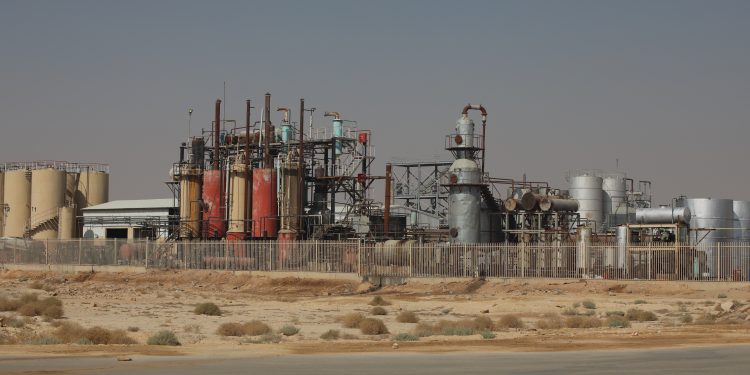As trade tensions between the US and China intensify, manufacturers are searching for alternative bases to avoid tariff risks. Gulf countries, especially Saudi Arabia, are emerging as attractive options thanks to their energy resources and strategic positioning.
Experts note that rising tariffs are prompting businesses to consider relocating operations to the Gulf Cooperation Council. With lower tariffs and strong trade ties to the US, these states present a relative safe haven for manufacturers seeking stability.
Despite recent drops in oil prices, which fund much of the Gulf’s ambitious projects, the region’s minimal reliance on US exports softens the blow. While the US imposed heavy tariffs on China, Gulf countries have maintained competitive rates, keeping their exports attractive.
This situation presents new opportunities for Saudi Arabia. Industry observers suggest the kingdom could step in to supply the US with goods previously sourced from China, aligning with Saudi plans to expand manufacturing and reduce its oil dependency.
Saudi Arabia has reported growth in non-oil exports, yet oil still dominates its economy. The current trade climate could accelerate diversification by making Saudi products more competitive in global markets, particularly as Chinese goods face higher barriers in the US.
The Gulf’s advantages for manufacturers include affordable energy, abundant land, and fewer regulations. Investments in sectors like petrochemicals, aluminum, and mid-level appliances are expected to grow, leveraging both existing infrastructure and new technology initiatives.
However, the Gulf could also face increased competition from Chinese companies redirecting exports to the region. Nonetheless, analysts believe the Gulf’s open economies and stable trade policies will continue to attract international manufacturers, offering a buffer against global tariff uncertainty.
While a surge in manufacturing may not fully offset losses from lower oil prices, Saudi Arabia’s economic strategy could benefit from focusing on essential exports such as petrochemicals and plastics. The kingdom’s long-term transformation plan may shift from grand projects to practical growth in industrial sectors, capitalizing on the global realignment of trade.


